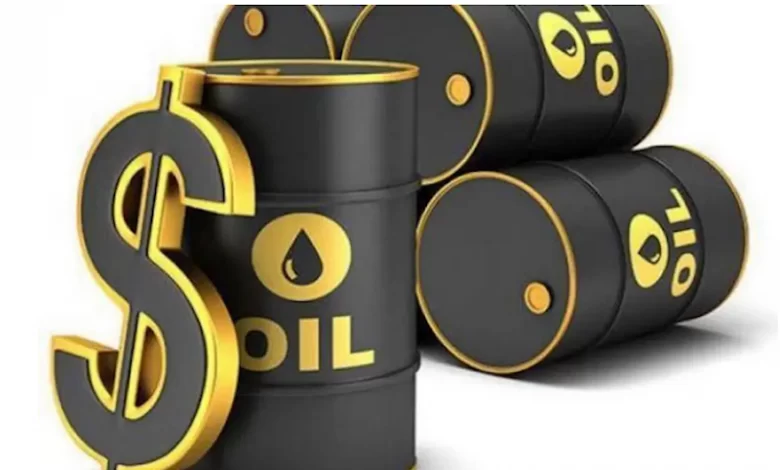
Oil prices surged by more than $4 per barrel during early Asian trading on Monday, driven by escalating military clashes between Israeli and Hamas forces, causing heightened political uncertainty in the Middle East. Brent crude rose by 4.94 percent, reaching $88.76 per barrel, while U.S. West Texas Intermediate crude increased by 5.11 percent, reaching $87.02 per barrel.
This abrupt price increase marked a reversal of the recent downward trend triggered by concerns about high global interest rates impacting demand A recent analysis by Decisionmakers on global crude prices reveals an upswing in oil prices following the Hamas attack on Israel.This is a tragic event that resulted in the loss of over a thousand lives on both the Israeli and Palestinian fronts.This incident comes after a recent dip in oil prices due to concerns regarding high-interest rates and fluctuating oil demand, triggered by the Organization of Petroleum Exporting Countries’ decision to maintain oil production cuts in major producing nations.As of October 9, Brent Crude stood at $87.70 per barrel, and West Texas Intermediate (WTI) was priced at $86.06 per barrel at 5:18 AM (GMT+1). Interestingly, crude prices had experienced a decline ($84 per barrel) just before the Hamas attack on October 7.Experts in the oil industry assert that, at present, the impact of the Israel-Hamas conflict on oil prices remains relatively minimal.However, there remains a looming potential for escalation, particularly if influential nations like Iran and the United States become directly embroiled in the evolving conflict between Palestine and Israel.Disturbingly, reports from the Wall Street Journal indicate that Iranian security officials played a part in supporting Hamas during the attack on Israel, even green-lighting the assault last week.This adds a layer of complexity and concern to an already tense situation. So, if Iran gets dragged into the escalating situation, it will affect the country’s oil supply and exports placing pressure on rising crude prices.News continues after this adWhat you should know: In response to the aggressive assault conducted by Hamas on the Gaza Strip on October 7, the Israeli Government, under the leadership of Prime Minister Benjamin Netanyahu, has opted for a decisive course of action.This involves cutting off the supply of vital resources such as electricity, fuel, and goods to Gaza.The strategic decision was carefully considered during a security cabinet meeting, during which a range of operational resolutions were agreed upon.T
Oil prices surged by more than $4 per barrel during early Asian trading on Monday, driven by escalating military clashes between Israeli and Hamas forces, causing heightened political uncertainty in the Middle East.
Brent crude rose by 4.94 percent, reaching $88.76 per barrel, while U.S. West Texas Intermediate crude increased by 5.11 percent, reaching $87.02 per barrel.
This abrupt price increase marked a reversal of the recent downward trend triggered by concerns about high global interest rates impacting demand
A recent analysis by Decisionmakers on global crude prices reveals an upswing in oil prices following the Hamas attack on Israel.
This is a tragic event that resulted in the loss of over a thousand lives on both the Israeli and Palestinian fronts.
This incident comes after a recent dip in oil prices due to concerns regarding high-interest rates and fluctuating oil demand, triggered by the Organization of Petroleum Exporting Countries’ decision to maintain oil production cuts in major producing nations.
As of October 9, Brent Crude stood at $87.70 per barrel, and West Texas Intermediate (WTI) was priced at $86.06 per barrel at 5:18 AM (GMT+1). Interestingly, crude prices had experienced a decline ($84 per barrel) just before the Hamas attack on October 7.
Experts in the oil industry assert that, at present, the impact of the Israel-Hamas conflict on oil prices remains relatively minimal.
However, there remains a looming potential for escalation, particularly if influential nations like Iran and the United States become directly embroiled in the evolving conflict between Palestine and Israel.
Disturbingly, reports from the Wall Street Journal indicate that Iranian security officials played a part in supporting Hamas during the attack on Israel, even green-lighting the assault last week.
This adds a layer of complexity and concern to an already tense situation. So, if Iran gets dragged into the escalating situation, it will affect the country’s oil supply and exports placing pressure on rising crude prices.
News continues after this ad
What you should know: In response to the aggressive assault conducted by Hamas on the Gaza Strip on October 7, the Israeli Government, under the leadership of Prime Minister Benjamin Netanyahu, has opted for a decisive course of action.
This involves cutting off the supply of vital resources such as electricity, fuel, and goods to Gaza.
The strategic decision was carefully considered during a security cabinet meeting, during which a range of operational resolutions were agreed upon.
This action reflects the government’s intent to assert its position and safeguard its national interests amidst the ongoing conflict.
A key resolution was the suspension of essential supplies to Gaza, including electricity and fuel. Israeli Energy Minister, Israel Katz, affirmed this decision through a post on X (Twitter) the same day, stating, “I signed the order instructing the electric company to stop supplying electricity to the Gaza Strip. What was will not be.”
The motive behind these stringent actions, as per the security cabinet, is to effectively neutralize the military and governing capabilities of Hamas and Islamic Jihad.
The objective is to render them incapable and unwilling to threaten or attack the citizens of Israel for an extended period.
his action reflects the government’s intent to assert its position and safeguard its national interests amidst the ongoing conflict.A key resolution was the suspension of essential supplies to Gaza, including electricity and fuel. Israeli Energy Minister, Israel Katz, affirmed this decision through a post on X (Twitter) the same day, stating, “I signed the order instructing the electric company to stop supplying electricity to the Gaza Strip. What was will not be.”The motive behind these stringent actions, as per the security cabinet, is to effectively neutralize the military and governing capabilities of Hamas and Islamic Jihad.The objective is to render them incapable and unwilling to threaten or attack the citizens of Israel for an extended period.






